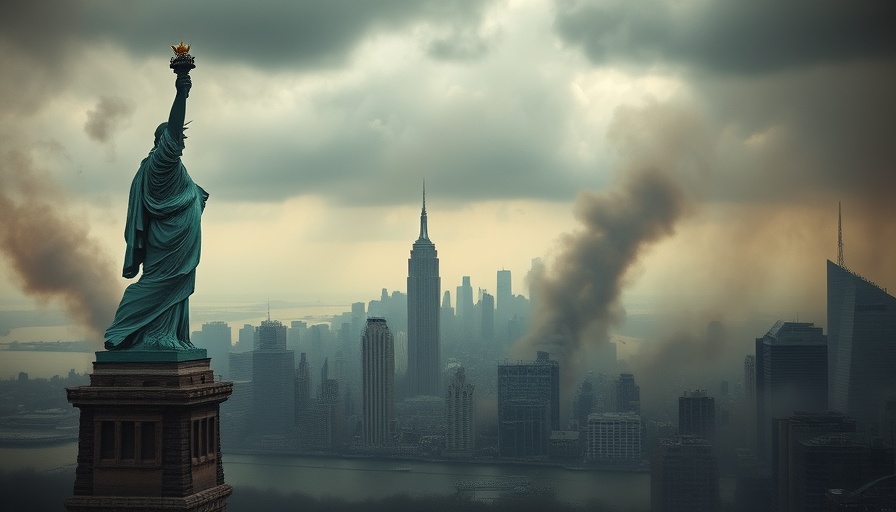
A Love Letter to Urban Resilience in the Face of Chaos
Every once in a while, a film comes along that transcends its genre, gripping audiences not just with excitement but with emotions that resonate on a profoundly human level. "Cloverfield," directed by Matt Reeves, is one such film—an exhilarating found-footage science fiction horror that explores themes of love, loss, and the visceral instinct to survive amidst unprecedented chaos. Set against the backdrop of an alien attack in New York City, the film functions not merely as a monster flick but as a poignant reflection on our relationships and priorities in dire circumstances.
The Vertigo of Found-Footage Storytelling
The found-footage style of "Cloverfield" immerses viewers inside the adrenaline-fueled chaos, enhancing the horror experience. The film begins with a seemingly typical party, but the lens quickly shifts to capture the staggering destruction wrought by an alien entity. The way the camera shakes and sways alongside the characters builds a visceral sense of fear, embodying their frantic search for survival. This narrative style resonates particularly with younger audiences who relate to the chaotic energy of urban life and the impact of unforeseen events.
Emotional Stakes in a Catastrophe
The character dynamics within the film are pivotal, representing varied responses to disaster. The protagonist, Rob, played by Michael Stahl-David, is painfully aware of his unresolved feelings for Beth, portrayed by Odette Yustman. As they navigate the destruction around them, Rob's determination to reach Beth metaphorically illustrates the lengths to which we go to protect those we love. This emotional core deepens the film's impact, transforming monster attacks into a vessel for profound human experiences.
Boston's Ties to the Cloverfield Phenomenon
Boston locals may find an extra layer of engagement with "Cloverfield". Its themes of urban identity in crisis parallel the challenges faced by cities around the world, particularly in the wake of natural disasters or significant societal shifts. Similar to New York City, Boston has a rich history of resilience, where communities have rebuilt and redefined themselves after adversity. Thus, watching "Cloverfield" can foster a deeper appreciation for how urban locations transform alongside their inhabitants.
Final Thoughts
In essence, "Cloverfield" is not only about monstrous aliens; it’s a reflection on love, fear, and human tenacity during calamity. This cinematic experience serves as a reminder that in moments of extreme peril, our deep-seated connections to one another often come into sharp focus. As Boston’s local audience screens this powerful film, they may rediscover what truly matters when the world shakes beneath us. If you haven't seen it yet, or if it’s been a while, consider revisiting this rich piece of storytelling.
 Add Row
Add Row  Add
Add 




Write A Comment